8 Festive Sights for the Festival of Lights
The Fellowship | December 20, 2019

On Sunday, Jews around the world will begin celebrating one of the most joyful holidays on the Jewish calendar. For our Christian friends, this celebration might be familiar because of its proximity to the holiday season, but we’d like to share eight things everyone should know about Hanukkah!
1. The Festival of Lights

Hanukkah is also known as the Festival of Lights, and is celebrated with candles and other bright decorations, much like another holiday that occurs around the same time of year…but Hanukkah is…
2. Not the Jewish Christmas

While Hanukkah and Christmas occur around the same time (this year, Christmas falls during Hanukkah), they are not the same holiday. Hanukkah begins on the 25th day of the Hebrew month of Kislev, which the Bible says “was winter” (John 10:22). Yes…
3. Hanukkah Is in the Bible
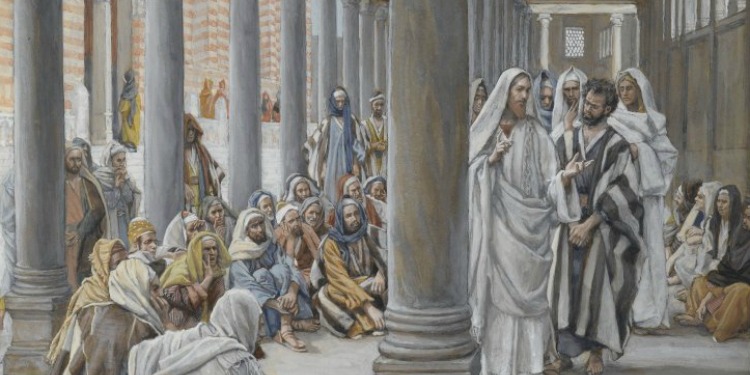
In John’s Gospel, it mentions “the Festival of Dedication…and Jesus was in the temple courts walking in Solomon’s Colonnade” (10:22-23). Other joyous biblical festivals include Purim (the Festival of Lots) which celebrates the story of Esther and Sukkot (the Festival of Booths) which celebrates God’s providence to the Israelites as they wandered in the desert.
And Hanukkah literally means “dedication” and is a festival which Jesus would have celebrated, and did celebrate, here in the section of the Temple known as Solomon’s Colonnade or Solomon’s Porch. So, what dedication did Jesus celebrate on Hanukkah? First, we need to go back almost 200 years before Jesus’ time to a time…
4. When the Greeks Ruled the Holy Land
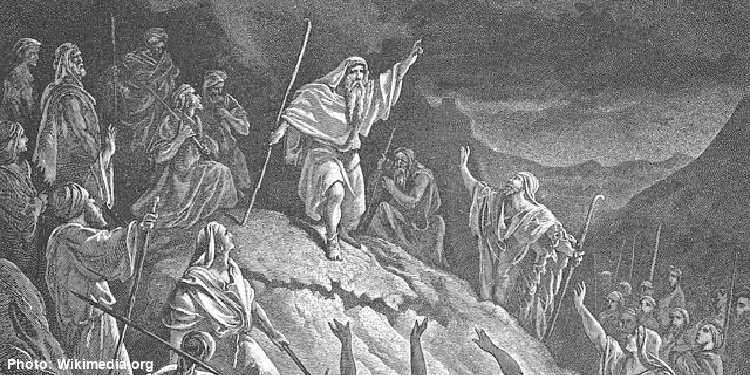
Before the Romans ruled the land of Israel during Jesus’ time, the Greeks took hold of the Holy City of Jerusalem. There, King Antiochus not only banned the practice of Judaism, he turned the Holy Temple into a den of wicked worship. A statue of Zeus was erected. Pigs were sacrificed on the Temple altar. This desecration angered the Jewish people, including…
5. The Maccabees
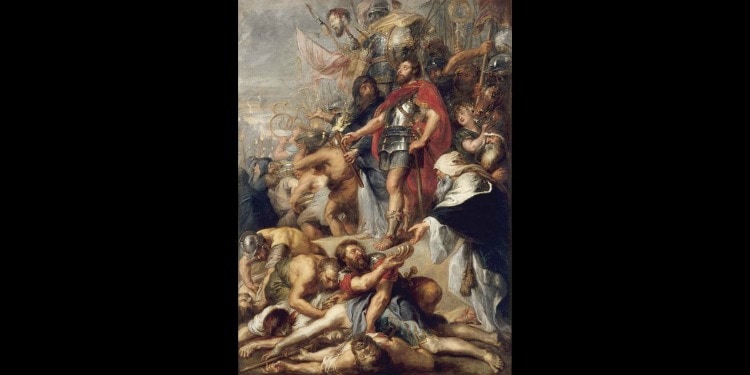
The books of Maccabees is not included in the Hebrew Bible, nor is it found in the Christian Bible that most Protestants read. However, these books tell the story of a small band of Jewish rebels who stood up against their Greek overlords’ desecration.
Led by a priest named Mattathias and his five sons, these Jews revolted against the Greek occupiers. While the Greeks outnumbered the Maccabees, both in manpower and firepower, God worked the first of His miracles during this story of might versus right. Mattathias’ son Judah led the rebels to a decisive victory over the Greeks, liberating the Holy Temple and preparing it to be rededicated (and that’s how Hanukkah got its name!). But to dedicate the Temple, they would need pure oil for its menorah. The Greeks, however, had defiled all of the Temple’s oil save for enough for just one day. It would take eight days, however, to make more pure oil. The Jews would need another miracle. And God would deliver…
6. The Miracle of the Oil
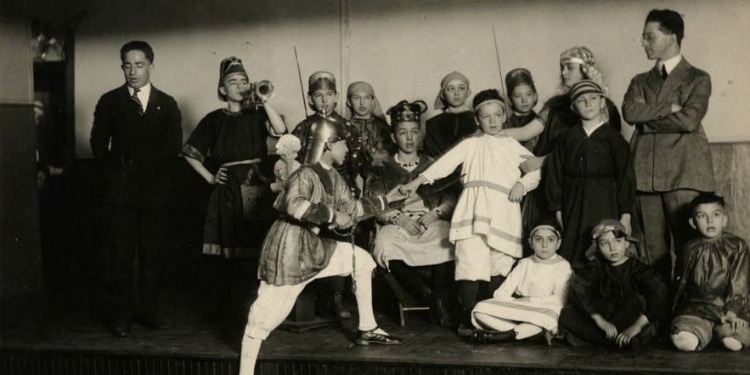
As the Jews worked to prepare a fresh supply of pure oil, the one-day supply of oil they had burned…and burned…and burned…and burned…
Yes, God provided yet another miracle, allowing that paltry flask of pure oil to last for not just one night, but eight nights. It is this miracle that the Jewish people have celebrated for eight nights for more than two thousand years — from Jesus’ time to these Jewish students in St. Paul, MN, in 1928 to Jewish people around the world today. So how do they celebrate?
7. Hanukkah Celebrations
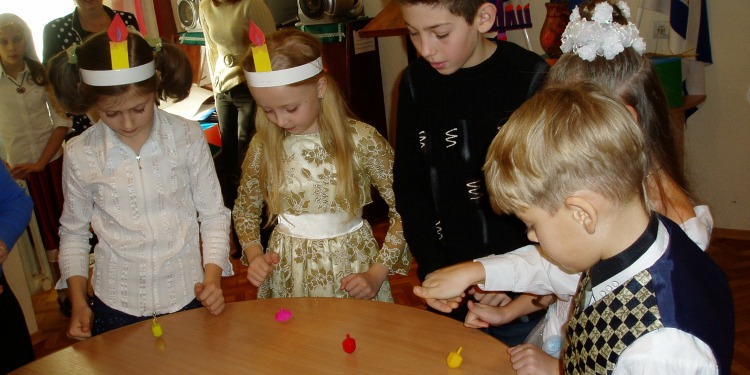
While Jewish children (and adults!) around the world celebrate in many different ways, some of the more common traditions include spinning a top called a dreidel. The dreidel has four sides, each of which is imprinted with a Hebrew letter abbreviating the words, “A miracle happened here.”
Another tradition during Hanukkah is the eating of fried foods, including latkes (potato pancakes) and jelly doughnuts called sufganiyot (seen here being shared by Rabbi Eckstein and IDF soldiers).
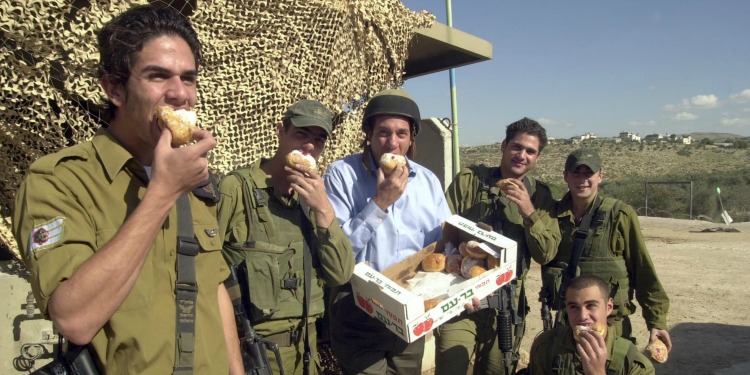
A third fun Hanukkah tradition that’s just as delicious as fried foods is sharing and eating gelt, chocolate coins in gold wrappers.
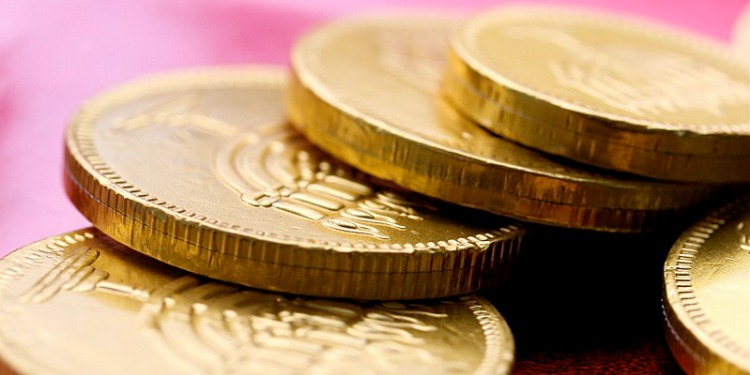
But perhaps the most famous Hanukkah celebration of all, and the one that best reflects the name “Festival of Lights” is the lighting of…
8. The Hanukkah Menorah
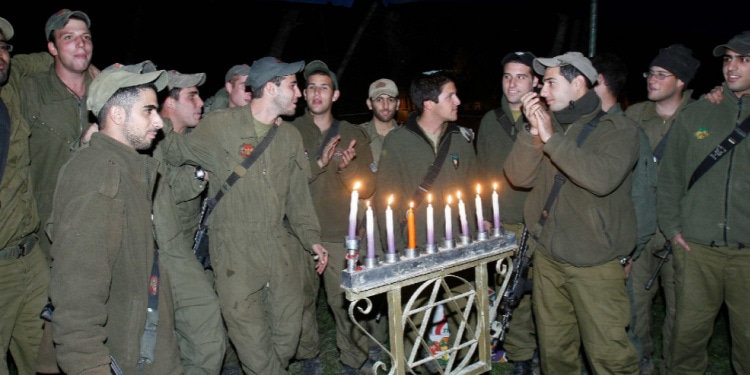
Unlike the regular menorah, which has but seven candles, the menorah lit during Hanukkah has nine. Why nine candles?
Well, eight of the candles represent the eight miraculous nights the Maccabees spent making more pure oil. And the ninth, called the shamash, sits in the middle of the menorah and is used to light each candle. So, on the first night of Hanukkah, two candles are actually lit — the shamash, as well as the first of the regular candles. On each successive night, another candle is lit. And this, my friends, is how the Jewish people celebrate the Festival of Lights, a remembrance of one of God’s miracles during this festive season of miracles. Happy Hanukkah!
